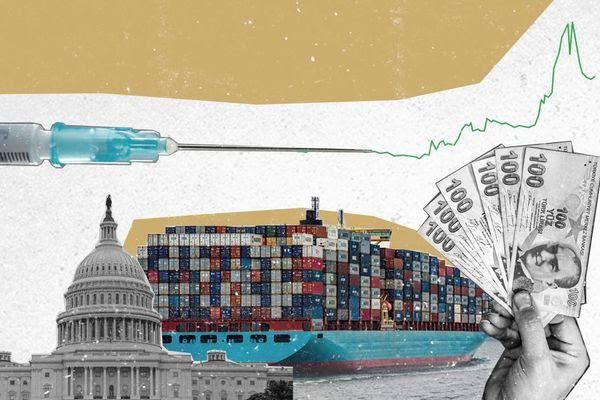US Fed vs inflation — game on
This week, the US Federal Reserve is set to increase interest rates by as much as 75 basis points or more in a bid to tamp down soaring inflation. Last Friday's inflation report showed prices growing at an annual rate of 8.6%, the highest in over 40 years. That price growth reflects today’s higher fuel and food prices, brought on by Russia’s war in Ukraine, lingering pandemic-related supply chain constraints, and Biden’s own pandemic stimulus spending. It will now fall largely to the Fed to rein things in. The effects of the Fed’s move this week will be watched closely by markets to be sure, but also by political strategists on both sides of the aisle. Just five months out from the US midterm elections, economic issues top US voters’ concerns, and recent polls say they trust Republicans more than Democrats when it comes to taming inflation.
Who owns the Taiwan Strait?
China now says it does, but Taiwan insists it's an international waterway. Who's right? It depends. China's recent claim to full sovereignty over the waters that separate the self-governing island from the mainland is based on a very loose interpretation of the UN Convention on the Law of the Sea, which allows countries to claim up to 12 nautical miles of territorial — sovereign — waters and up to 200 nautical miles of exclusive economic zone, which means the sea and everything under it can only be exploited by that country. Interestingly, in 2016 an international tribunal invoked UNCLOS to outlaw China’s claim to virtually the entire South China Sea, but Beijing (surprise!) won't recognize the ruling. The problem is that the convention doesn’t specifically define what constitutes “international waters,” the strait is only 220 nautical miles at its widest point, and Taiwan is not a party to UNCLOS. So, why does any of this matter? The US navy regularly patrols the body of water to conduct freedom of navigation operations, which China doesn't like one bit.
BoJo goes for broke
On Monday, Boris Johnson’s government unveiled legislation that would scrap customs checkpoints between the UK province of Northern Ireland and the rest of Great Britain that are part of the Northern Ireland Protocol signed by the UK and EU. British officials say those checkpoints, the most controversial part of Johnson’s post-Brexit deal with Brussels, have created chaos in Northern Ireland. EU officials warn that Johnson’s move violates international law. The EU could take legal action against the UK and even scrap their free trade deal altogether. This new standoff comes at a politically delicate moment. Last month, Sinn Féin became the first Irish nationalist party to win a plurality of seats in Northern Ireland’s Assembly, raising hopes and fears that the province will eventually exit the UK to reunify with the Irish Republic. Last week, Johnson survived an embarrassing and damaging vote of confidence within his party. Inflation remains a major headache within both the UK and Europe, and Russia’s war in Ukraine makes this a dangerous time for a possible trade war.More For You
At the 62nd Munich Security Conference in Munich, GZERO’s Tony Maciulis spoke with Benedikt Franke, Vice Chairman and CEO of the Munich Security Conference, to discuss whether the post-1945 global order is under strain or already unraveling.
Most Popular
Zelensky agrees: elections matter #PUPPETREGIME
As more small businesses move sales, payments, and customer relationships online, they unlock new opportunities, but they also become easier targets for cyber-criminals and other threat actors.
When Japanese Prime Minister Sanae Takaichi called snap elections last month, it was a big gamble. Holding a winter election just four months into her tenure with no real policy record to run on?
